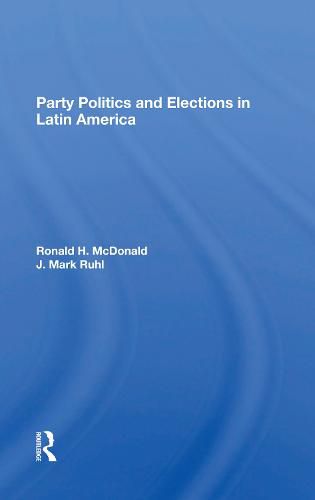Readings Newsletter
Become a Readings Member to make your shopping experience even easier.
Sign in or sign up for free!
You’re not far away from qualifying for FREE standard shipping within Australia
You’ve qualified for FREE standard shipping within Australia
The cart is loading…






Latin America has one of the longest histories of active party politics and elections of any region in the world, yet the experiences there have been very different from those of Western Europe and the United States. In Latin America, party politics has produced governments ranging from democratic to authoritarian, with considerable variations among nations as well as fluctuations within countries over time.
This text provides a comprehensive comparative review of party politics in each Latin American country. The evolution of specific parties is examined, and special emphasis is given to the behavioral aspects of voting patterns and party affiliation. In addition, Drs. McDonald and Ruhl discuss each country’s distinctive patterns of organizing and holding elections, including the laws and procedures that regulate them. Finally, the authors identify the general experiences the countries share, especially the long-term impact of sustained modernization on national party politics. The book provides students with a general framework for interpreting party politics in individual countries and for understanding how politics is linked to Latin America’s economic development, democracy, and political stability.
$9.00 standard shipping within Australia
FREE standard shipping within Australia for orders over $100.00
Express & International shipping calculated at checkout
Latin America has one of the longest histories of active party politics and elections of any region in the world, yet the experiences there have been very different from those of Western Europe and the United States. In Latin America, party politics has produced governments ranging from democratic to authoritarian, with considerable variations among nations as well as fluctuations within countries over time.
This text provides a comprehensive comparative review of party politics in each Latin American country. The evolution of specific parties is examined, and special emphasis is given to the behavioral aspects of voting patterns and party affiliation. In addition, Drs. McDonald and Ruhl discuss each country’s distinctive patterns of organizing and holding elections, including the laws and procedures that regulate them. Finally, the authors identify the general experiences the countries share, especially the long-term impact of sustained modernization on national party politics. The book provides students with a general framework for interpreting party politics in individual countries and for understanding how politics is linked to Latin America’s economic development, democracy, and political stability.